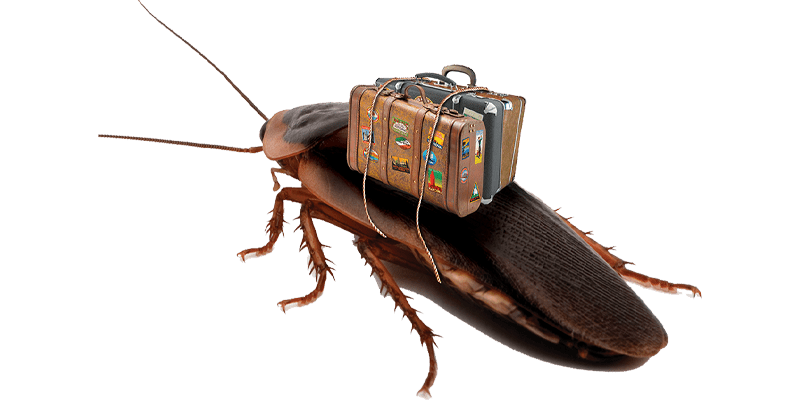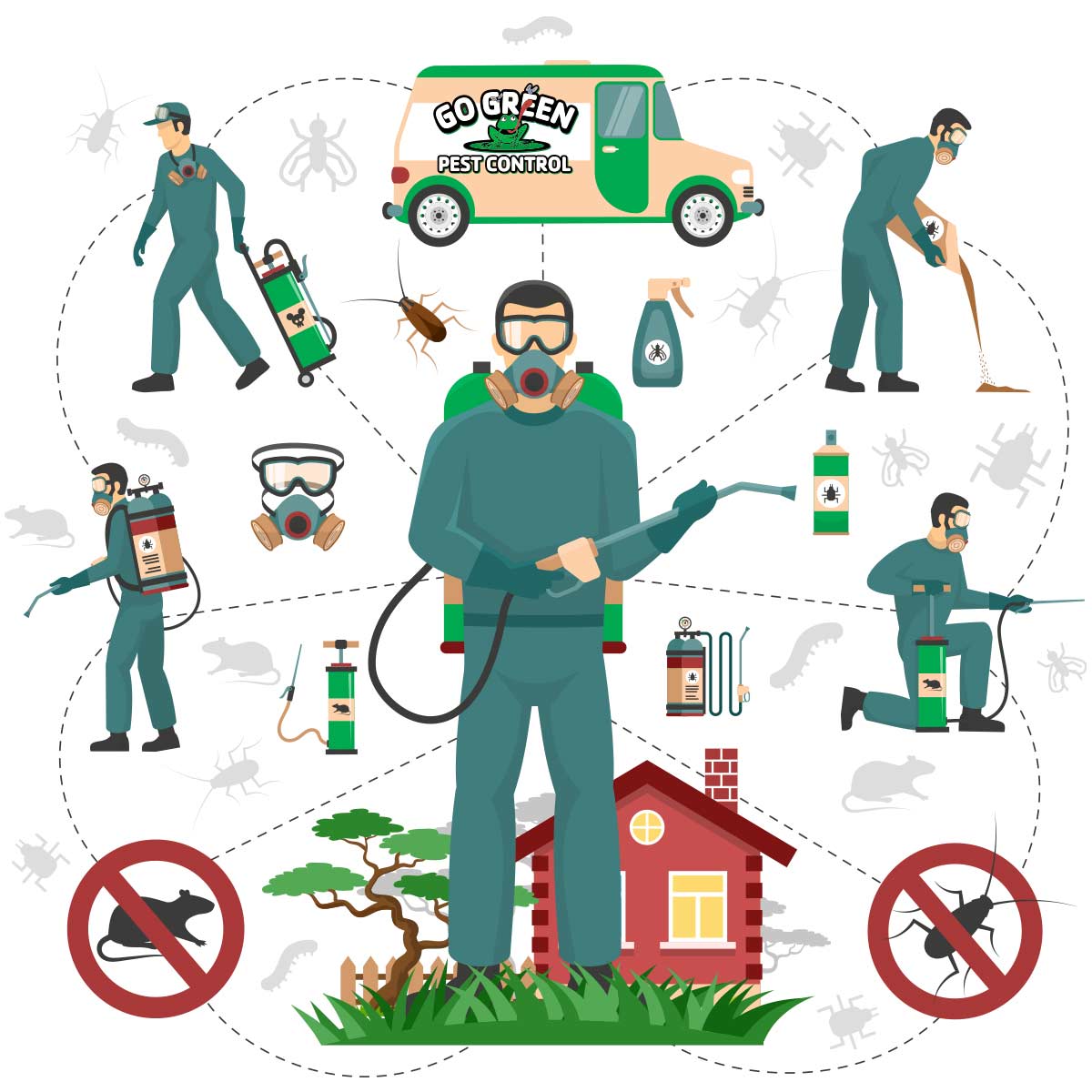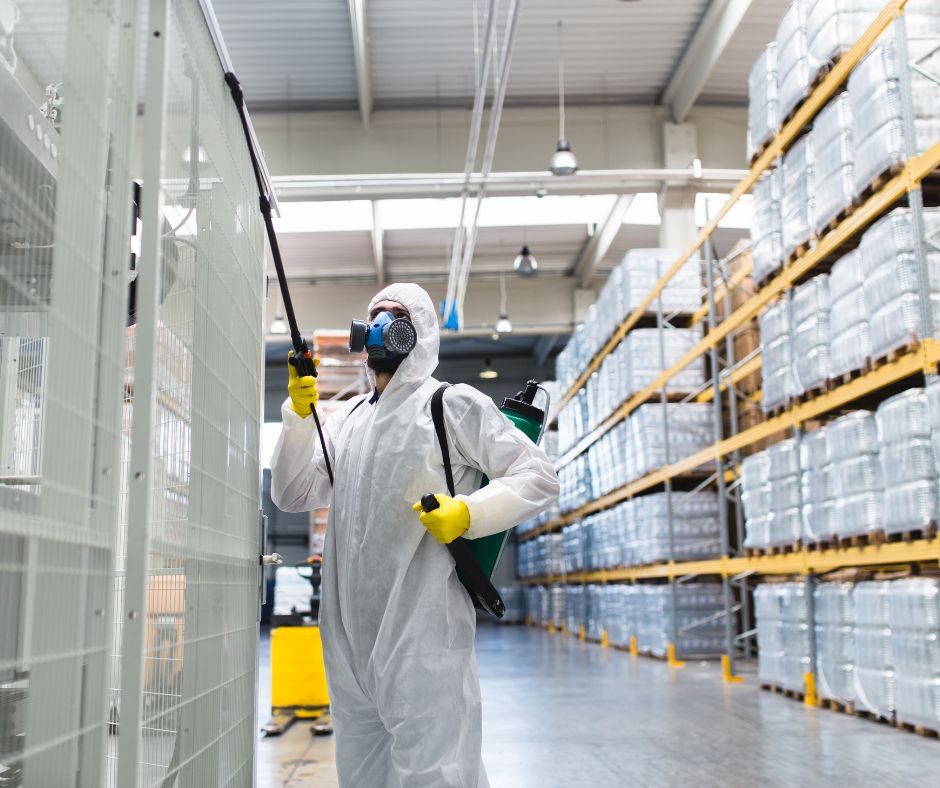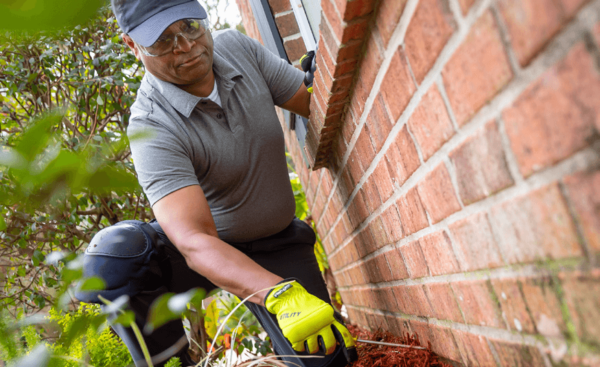Effective Termite Treatment Port Charlotte to Defend Your Home
Discover the Relevance of Insect Control in Maintaining a Healthy Environment and Therapy Methods

The Role of Parasites in Communities
Pests, usually checked out solely as nuisances, play a multifaceted role in ecological communities that is important for keeping ecological equilibrium. They contribute substantially to various eco-friendly processes, consisting of pollination, nutrition biking, and insect control. Numerous insect varieties, such as and butterflies, are vital pollinators for a vast range of plants, which in turn supports biodiversity and food manufacturing.
Additionally, insects offer as target for countless predators, producing an essential link in food internet. This interdependence guarantees the survival of numerous species and helps control populations within ecological communities (Termite treatment Port Charlotte). Decomposer bugs, such as particular beetles and fungi, are instrumental in breaking down organic issue, thus enriching soil and helping with nutrient recycling.
Conversely, while pests can be useful, their overpopulation or intrusion into non-native atmospheres might interrupt these environmental features. This complexity underscores the importance of recognizing parasite characteristics, as reliable bug administration strategies must consider both their eco-friendly roles and possible influence on human tasks. Balancing pest existence while lessening damage is vital for preserving the honesty of ecosystems and making certain farming efficiency.
Health Dangers Related To Pests
The visibility of bugs in various settings prolongs beyond their ecological duties, as they also posture considerable health threats to people and animals. Several bugs, including bugs, rodents, and bloodsuckers, are carriers of conditions that can have severe health effects. Rats are known to send hantavirus and leptospirosis, both of which can lead to severe breathing and kidney concerns, respectively.
Pests such as mosquitoes and ticks are infamous for spreading vector-borne illness like jungle fever, dengue fever, and Lyme condition. These health problems can cause high morbidity and mortality rates, especially in prone populations. Additionally, bugs like bedbugs and cockroaches can intensify allergic reactions and bronchial asthma, adding to respiratory problems in individuals, particularly those with pre-existing conditions.
In addition, the visibility of pests can lead to psychological tension and discomfort, impacting overall wellness. Contamination of food and surfaces by parasite droppings and stays can result in foodborne diseases, highlighting the significance of preserving hygienic conditions. Recognizing the health risks associated with parasites is crucial in identifying the need of efficient bug monitoring strategies to safeguard animal and human wellness.

Benefits of Effective Insect Control
Reliable parasite control is crucial for keeping a healthy and safe environment, as it continually alleviates the various risks linked with bug invasions. One of the main benefits of reliable bug administration is the decrease of health and wellness risks.
Additionally, reliable insect control safeguards property and structures from damages. Numerous pests, like termites and woodworker ants, can cause extensive like this architectural damages that might need pricey repair services. By proactively managing these home owners, companies and problems can shield their financial investments.
One more substantial advantage is the enhancement of total quality of life. A pest-free atmosphere adds to mental wellness and minimizes anxiety connected with infestations. Efficient bug control fosters a safer environment for children and animals, guaranteeing that homes remain sanctuaries totally free from damaging chemicals and disease-causing microorganisms.
Usual Bug Control Methods

In the world of bug management, numerous methods are utilized to combat problems successfully. These techniques can be extensively categorized right into 3 primary approaches: social, mechanical, and chemical controls.
Cultural control entails customizing techniques to decrease parasite survival, recreation, and establishment. This might consist of crop turning, correct cleanliness, and habitat manipulation, which jointly develop an environment much less for pest expansion.
Mechanical control employs physical techniques to remove pests (Termite treatment Port Charlotte). Methods such as vacuum cleaners, obstacles, and catches are generally used to directly get rid of pests from a location. This approach is particularly effective for managing rats and pests without making use of harmful chemicals
Chemical control involves the application of chemicals to take care of pests. These substances can be classified into pesticides, fungicides, and herbicides, each targeting particular sorts of insects. It is important to utilize these chemicals carefully, adhering to safety and security standards and policies to minimize potential injury to non-target types and the atmosphere.
Each insect control technique has its constraints and advantages, and typically, an integrated approach incorporating several methods generates the ideal lead to maintaining a pest-free setting.
Sustainable Pest Management Practices
Lasting insect monitoring methods encompass an array of approaches created to minimize ecological effect while efficiently regulating insect populations. These methods prioritize the usage of ecologically friendly approaches over chemical pesticides, thus decreasing the threat of damage to non-target types, including valuable bugs, wild animals, and human beings.
Integrated Parasite Administration (IPM) is a cornerstone of lasting methods, combining biological, social, mechanical, and chemical methods to handle pests. Organic control involves presenting natural killers or parasites to reduce pest populaces. Cultural techniques, such as crop turning and polyculture, interfere with pest life cycles and boost environment resilience.
Mechanical approaches, such as traps or obstacles, can properly stop parasite gain access to without chemical intervention. Additionally, keeping healthy ecosystems with proper dirt administration, plant wellness, and biodiversity can naturally alleviate parasite problems.
Education and learning and awareness are important parts, empowering people and communities to recognize insect threats early and carry out safety nets. Termite treatment Port Charlotte. By fostering a holistic method that stabilizes parasite check my reference control with ecological integrity, sustainable insect administration techniques not only safeguard plants and frameworks however visit this website likewise add to a much healthier setting for future generations
Verdict

Recognizing the health and wellness risks associated with parasites is critical in identifying the need of efficient insect management methods to guard animal and human wellness.
Reliable bug control is necessary for preserving a healthy and balanced and safe setting, as it constantly minimizes the numerous risks linked with parasite invasions.Integrated Bug Monitoring (IPM) is a foundation of sustainable practices, combining organic, social, mechanical, and chemical techniques to manage pests. By recognizing the duty of parasites, recognizing affiliated health threats, and utilizing diverse therapy techniques, a sustainable strategy to pest monitoring can be achieved. Integrated Parasite Administration (IPM) stresses an alternative methodology that alleviates harm to beneficial microorganisms while efficiently regulating insect populaces.